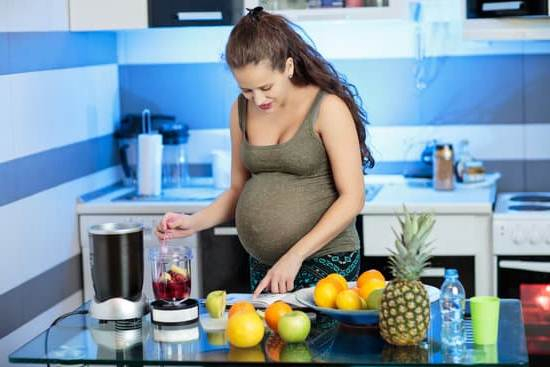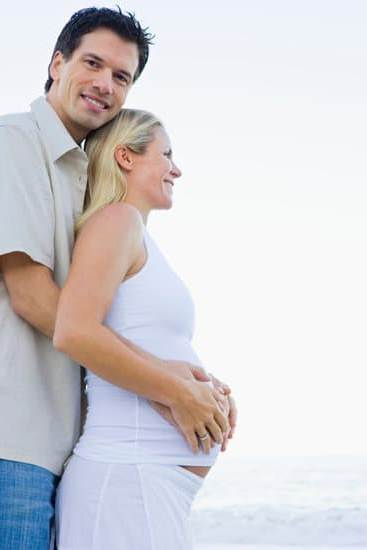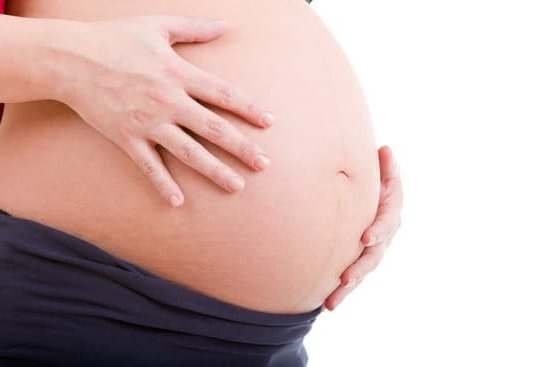Early Pregnancy Side Effects
Morning Sickness
Morning sickness is the most common side effect of early pregnancy. It occurs in about 50-90% of pregnant women and typically starts around 4-6 weeks into the pregnancy. Morning sickness is a term used to describe the nausea and vomiting that many pregnant women experience. The nausea can be mild or severe and can last all day or just in the morning. The vomiting can be mild or severe and can happen once in a while or several times a day. Some women also have other symptoms such as bloating, constipation, and heartburn.
The cause of morning sickness is not known, but it is thought to be related to the high levels of hormones that occur during early pregnancy. These hormones can cause the stomach to empty more slowly which can lead to nausea and vomiting. Morning sickness usually goes away by the end of the first trimester, but it can sometimes last throughout the pregnancy.
There is no cure for morning sickness, but there are some things that can help to relieve the symptoms. Some women find that eating small, frequent meals helps to reduce nausea. Others find that drinking ginger ale or eating ginger cookies help to calm their stomachs. Some women find that taking a vitamin B6 supplement also helps to reduce nausea. If you are experiencing severe morning sickness, your doctor may prescribe medication to help relieve the symptoms.
Back Pain
Back pain is another common side effect of early pregnancy. It occurs in about 50-70% of pregnant women and typically starts around 6-8 weeks into the pregnancy. Back pain can be a sharp, stabbing pain or a dull, aching pain. It can be located in the middle of the back, the lower back, or the upper back. The pain may get worse as the day goes on or when you are standing or sitting for long periods of time.
The cause of back pain during pregnancy is not known, but it is thought to be related to the changes that occur in the body during pregnancy. The weight of the baby and the uterus can cause the back muscles and ligaments to stretch and weaken. The hormone relaxin, which is released during pregnancy, can also cause the joints to become more flexible and the ligaments to become lax. This can lead to pain and discomfort in the back.
There is no cure for back pain during pregnancy, but there are some things that can help to relieve the symptoms. Some women find that wearing a support belt or using a pregnancy pillow helps to reduce the pain. Others find that doing exercises or stretches for the back helps to relieve the pain. Your doctor may also prescribe medication to help relieve the pain.
Headache
Headaches are a common side effect of early pregnancy. They occur in about 30-50% of pregnant women and typically start around 6-8 weeks into the pregnancy. Headaches during pregnancy can be caused by the changes in hormones, the increase in blood volume, and the increase in fluid retention. They can also be caused by stress and fatigue.
The treatment for headaches during pregnancy depends on the cause. If the headaches are caused by hormones, then they will usually go away after the first trimester. If the headaches are caused by increased blood volume, then they will usually go away after the baby is born. If the headaches are caused by stress or fatigue, then they can be treated by getting more rest and by taking breaks throughout the day. Your doctor may also prescribe medication to help relieve the headaches.
Early Pregnancy Test Online
When you are trying to conceive, every little bit of information can help. That is why so many couples turn to online early pregnancy tests to help them determine if they are pregnant as soon as possible. These tests are not as accurate as a blood or urine test performed by a doctor, but they can be a good indicator of whether or not you should take a trip to the doctor for a more accurate test.
The principle behind early pregnancy tests is that the level of the hormone hCG (human chorionic gonadotropin) increases in a woman’s bloodstream and urine when she is pregnant. By testing for the presence of hCG in a woman’s urine or blood, a doctor can determine if she is pregnant. Early pregnancy tests simply measure the level of hCG in a woman’s urine to see if it is above a certain threshold.
There are a number of different early pregnancy tests available online. Some of these tests are simple urine tests that measure the level of hCG in a woman’s urine. Others are more sophisticated and use a blood test to measure the level of hCG. Some of these tests also claim to be able to determine the age of the embryo and the health of the pregnancy.
It is important to remember that early pregnancy tests are not as accurate as tests performed by a doctor. If you are trying to conceive, it is best to take a trip to the doctor to get a more accurate test. However, if you are just trying to rule out pregnancy, an online early pregnancy test can be a good way to do that.
Is Hunger An Early Sign Of Pregnancy
?
Hunger is a sensation that is often felt early on in pregnancy. This is because the body is working hard to provide both the mother and the baby with the nutrients they need. While hunger is not always an early sign of pregnancy, it can be a sign that a woman is pregnant.
There are a few things that can cause hunger during pregnancy. One reason is that the body is working harder to provide energy to both the mother and the baby. Pregnant women also tend to need more calories than women who are not pregnant. This is because the baby is growing and needs energy to grow.
Hunger can also be a sign of pregnancy because of the changes that are happening in the body. During pregnancy, the body is preparing to give birth. This means that the body is releasing a hormone called human chorionic gonadotropin (HCG). HCG is the hormone that is responsible for the signs of pregnancy, including hunger.
If a woman is feeling hungry a lot during pregnancy, she should speak to her doctor. The doctor can help to determine if the woman is pregnant and if she is, the doctor can help to ensure that the woman is getting the nutrients she needs.
Increased Thirst Early Pregnancy
Pregnancy is an amazing time in a woman’s life. It is a time when a woman’s body is changing and growing to accommodate a new life. One of the most common symptoms of early pregnancy is increased thirst.
During early pregnancy, the body goes through many changes. One of the changes is an increase in the production of a hormone called progesterone. Progesterone causes the body to retain more water. This increase in water retention can lead to increased thirst.
Another change that happens during early pregnancy is an increase in the amount of blood in the body. This increase in blood volume can also lead to increased thirst.
Increased thirst is a common symptom of early pregnancy. If you are experiencing increased thirst, be sure to drink plenty of fluids to stay hydrated. Try to avoid drinks with caffeine and alcohol, as they can dehydrate you. Water, juice, and milk are all good choices for fluids when you are pregnant.
Lower Abdominal Cramps In Early Pregnancy
Lower abdominal cramps in early pregnancy can be caused by a number of different things, some more serious than others. The most common cause of cramps in early pregnancy is implantation. When the fertilized egg attaches to the uterine wall, it can cause some cramping. This type of cramping is usually mild and doesn’t last very long. Other causes of cramping in early pregnancy include:
-Morning sickness
-Constipation
-Gas and bloating
-Hormonal changes
If you are experiencing cramps in early pregnancy, it is important to monitor the severity and duration of the cramps. If they are mild and go away within a few minutes, there is no need to worry. However, if the cramps are severe and persist for more than a few hours, you should call your doctor. Severe cramps can be a sign of a more serious problem, such as an ectopic pregnancy.

Welcome to my fertility blog. This is a space where I will be sharing my experiences as I navigate through the world of fertility treatments, as well as provide information and resources about fertility and pregnancy.





